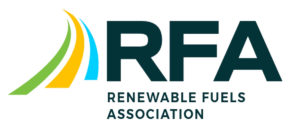 The comment period on EPA’s supplemental proposal for 2020 renewable volume obligations ended on Friday, and the Renewable Fuels Association’s message in comments submitted was simple when it comes to implementing blending obligations under the Renewable Fuel Standard: Just follow the law
The comment period on EPA’s supplemental proposal for 2020 renewable volume obligations ended on Friday, and the Renewable Fuels Association’s message in comments submitted was simple when it comes to implementing blending obligations under the Renewable Fuel Standard: Just follow the law
RFA’s comments highlight the fact that the Clean Air Act requires EPA to “ensure” that the RFS volumes specified by Congress are fully enforced. By issuing dozens of small refinery exemptions and refusing to reallocate the lost volume, EPA has failed to comply with this legal obligation in recent years.
“The congressional intent is indisputable and unambiguous, and the law is clear,” according to RFA President and CEO Geoff Cooper. “Unfortunately, the EPA has forsaken the law in recent years by failing to ensure the congressionally directed renewable fuel volume requirements are enforced. EPA issued 85 retroactive small refinery exemptions for the 2016-2018 compliance years, undercutting the statutory renewable fuel volumes by a total of 4.04 billion gallons.”
While EPA’s supplemental proposal takes a step in the right direction, it doesn’t go far enough in ensuring that the congressional RFS volumes are fully enforced. “If past is prologue, EPA’s proposal could result in the 15-billion-gallon requirement sliding backward to a requirement for just 14.4 billion gallons in 2020,” according to the comments.
RFA said the agency can get the RFS back on track and uphold President Trump’s commitment to farmers by fully redistributing renewable fuel blending requirements that are waived due to small refinery exemptions.
Cooper talked about RFA’s opinion of the supplemental rule in this interview from the recent NAFB convention.
NAFB19 Interview Geoff Cooper, Renewable Fuels Association (11:10)

